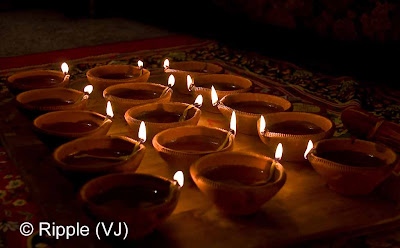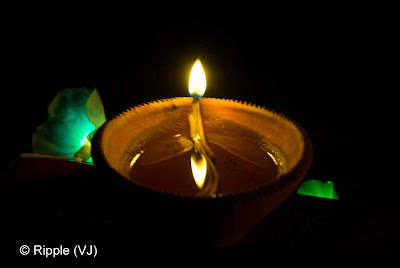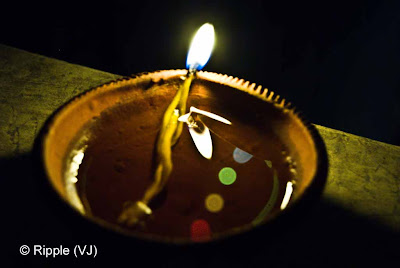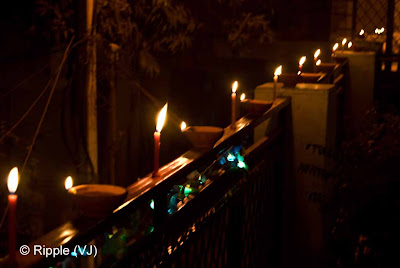Diwali, or Deepawali, is one of the biggest and grandest festivals of India. Celebrated across the globe by Indians as the "Festival of Lights," Diwali signifies victory of good over evil.
The celebration focuses on lights and lamps, particularly the traditional deep or deeya (earthen lamp), and fireworks.
 ***Clay Diyas during Laxmi Pooja from different angle***
***Clay Diyas during Laxmi Pooja from different angle***
 ***Clay Diyas during Laxmi Pooja from different angle***
***Clay Diyas during Laxmi Pooja from different angle***As with other Indian festivals, Diwali signifies many different things to people across the country:

In north India, Diwali commemorates the homecoming of Lord Rama of Ayodhya after a 14-year exile in the forest and the defeat of the demon king Ravana. On this day, he returned to Ayodhya with his wife Sita and younger brother Lakshman to claim his kingdom. The people of Ayodhya welcomed him back by lighting up rows of lamps (deepa-wali) to help guide the way.
For Gujaratis, and Marwaris, Diwali marks the worship of Goddess Lakshmi (Goddess of Wealth) and also the beginning of the new financial year. For Bengalis, it is the time to worship Goddess Kali or Durga.
 ***Diya with symmetrical reflection***
***Diya with symmetrical reflection***
 ******
******
 ***Diya with symmetrical reflection***
***Diya with symmetrical reflection*** ******
******Diwali also marks the end of the harvest season in most of India. Farmers are thankful for the year gone by, and pray for a good harvest for the year to come.
 Everywhere, Diwali signifies the renewal of life and is an occasion for much celebration.
Everywhere, Diwali signifies the renewal of life and is an occasion for much celebration.
 Everywhere, Diwali signifies the renewal of life and is an occasion for much celebration.
Everywhere, Diwali signifies the renewal of life and is an occasion for much celebration.






.jpg)
Comments